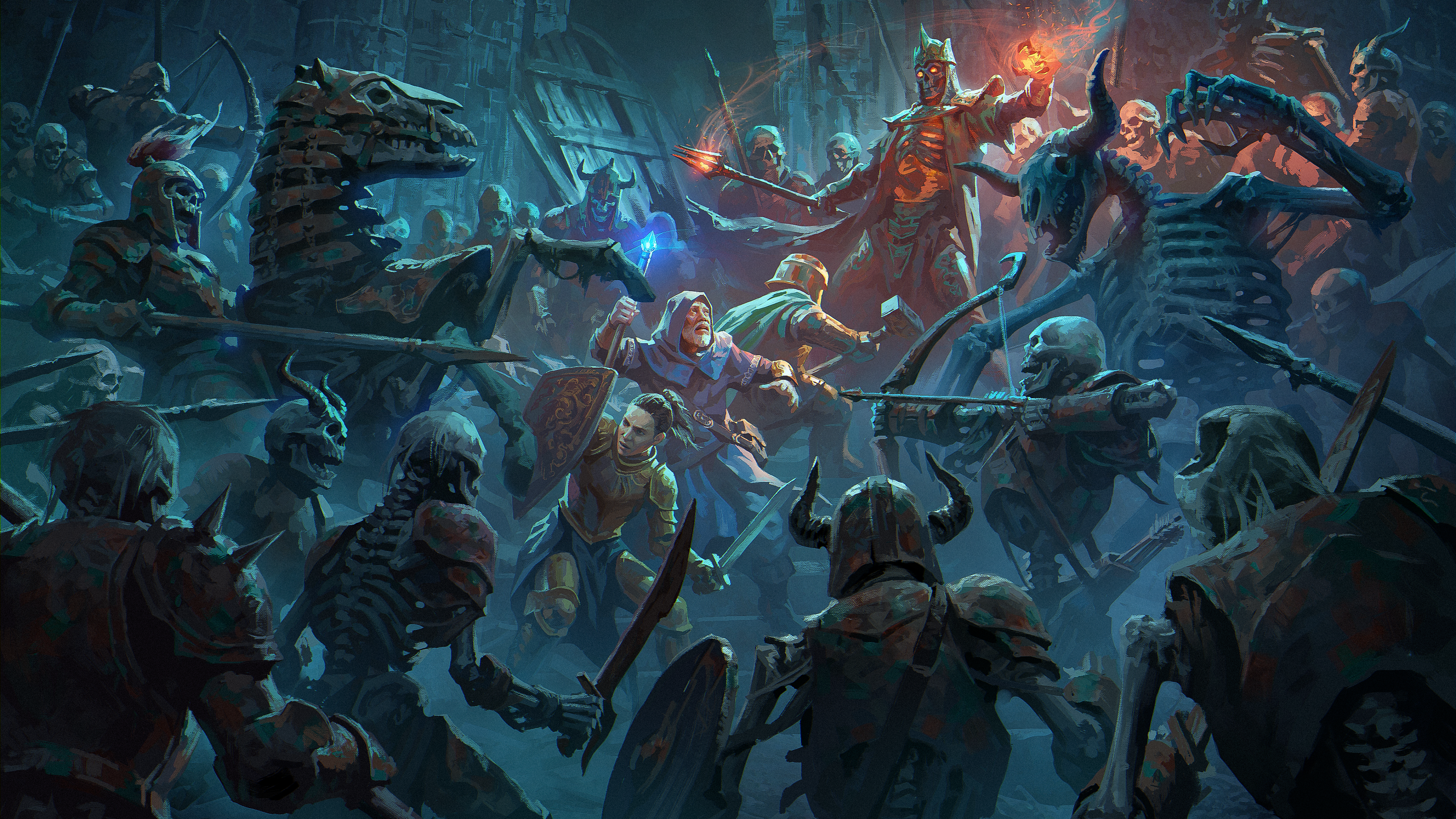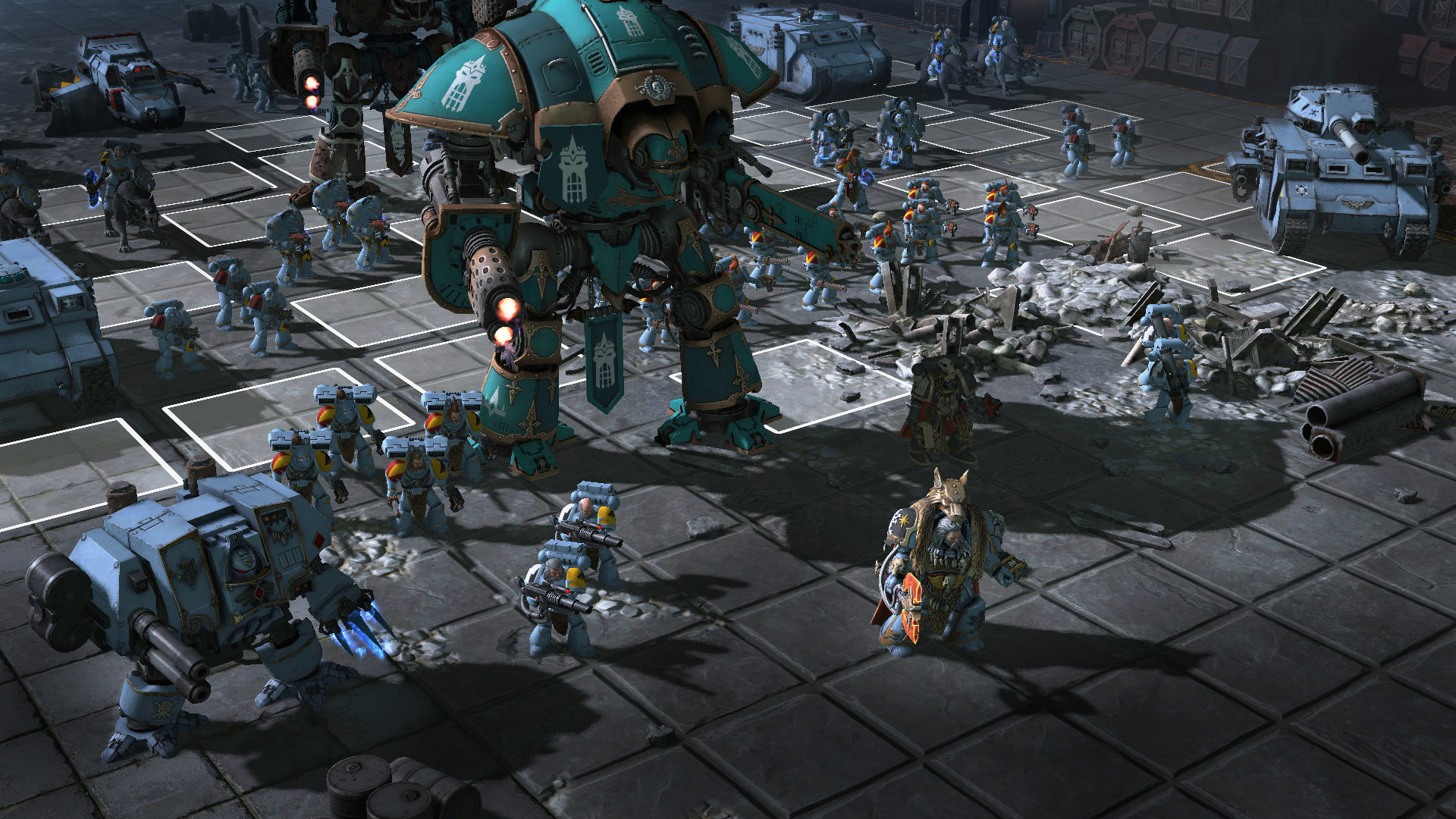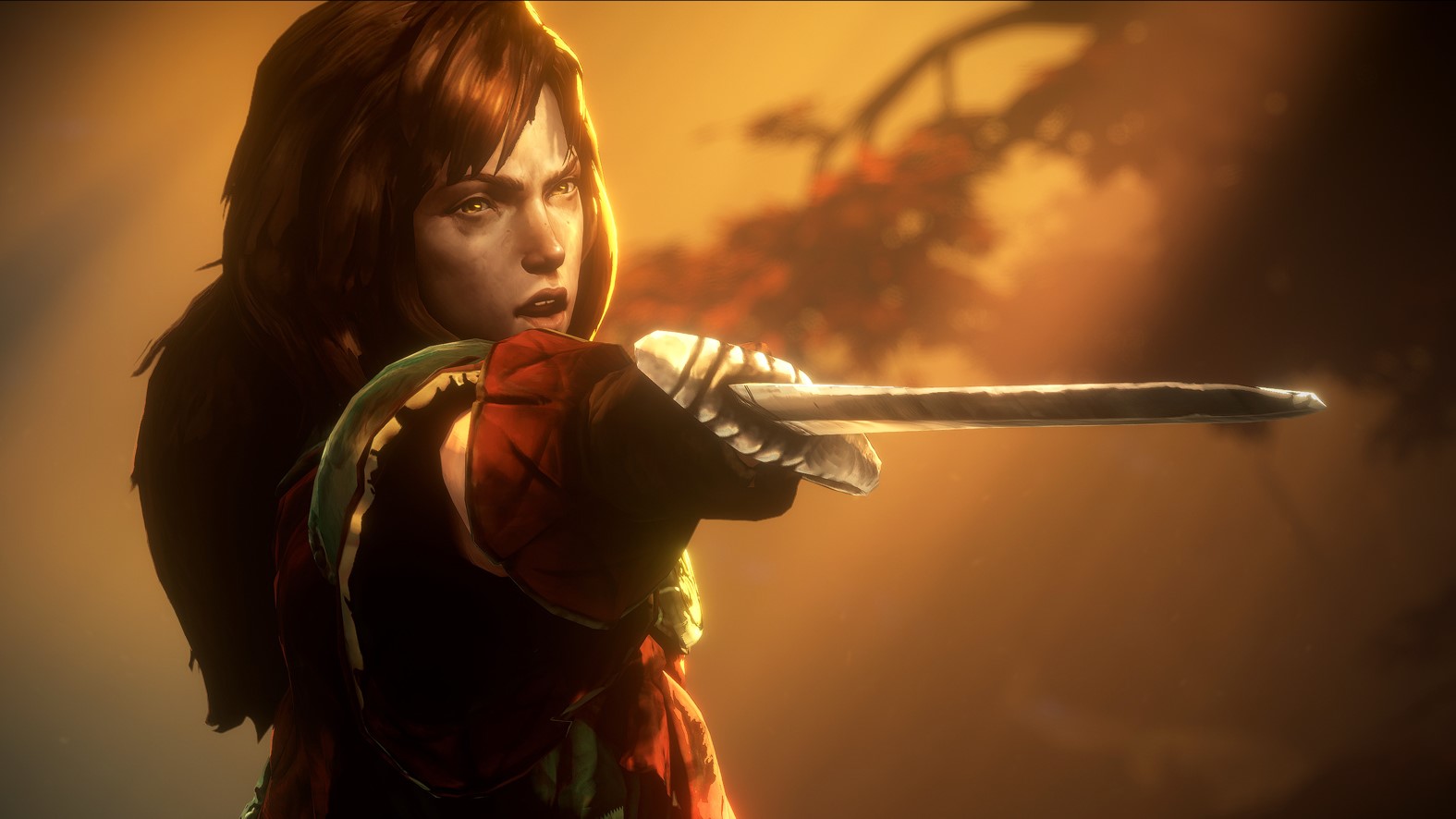
An advance look at the 2024 Player's Handbook, Dungeon Master's Guide, and Monster Manual leaves me concerned that the game's future is still stuck in the past.
With pre-orders for the three new Dungeons & Dragons core books now live, Wizards of the Coast was kind enough to give me an early look at what you can expect from each. But while it’s clear that a lot of work and passion has gone into these reimagined releases, I’m concerned that so much of what I’m shown feels stuck in tabletop gaming’s past, rather than the foundation for a new future for D&D.
To be clear, I haven’t read the full books yet—WOTC’s presentation only offered a top-level view of what’s to be found within, with key examples. But the parts the designers were keen to highlight felt, to me, hugely revealing of what they see as important, and though I did like some of what I saw, Wizards of the Coast doesn’t seem to be addressing any of the game’s core problems, or ensuring its game feels modern and relevant through these partial updates.
You’d be forgiven for still not fully understanding why there’s a new set of D&D books to buy. WOTC has been clear that this isn’t a new edition of the game. What it’s been rather less clear on is what the new core rule books actually are. So, to put it in plain terms: this is an update for 5th edition, like a big patch or a new season in a videogame, based on a brand new Player’s Handbook, Dungeon Master’s Guide, and Monster Manual that replace the existing tomes. The core system isn’t changing, but it is being tweaked, added to, and reformatted. All this new material will, however, still be compatible with old books and adventures.
The idea is that this will be the model going forward—incremental updates, instead of major shifts, with core books referred to by the year of their release rather than an edition number. We’ve played D&D 5e with the 2014 books, now we’ll be playing with the 2024 books, and eventually we’ll be playing with the 2034 books (or earlier, if this works out).
New content
(Image credit: Wizards of the Coast)
From what I’m shown, these books have been really substantially reimagined—don’t fear that these are just minor updates to get you to buy the same things again. The new Player’s Handbook offers an easier ramp into the game, with more comprehensive examples and explanations of the rules, plus reworked backgrounds and classes with a huge selection of subclasses and spells to choose from. The Monster Manual rebalances existing monsters and adds plenty of new ones, including apex monsters for each creature type that serve as epic bosses (as soon as I hear the name “Blob of Annihilation”, I want to fight one).
Most changed is the Dungeon Master’s Guide. The DMG has been an odd book in each edition, often feeling like the most inessential of the three and containing a muddle of different additions that don’t really cohere into a useful resource. This new version, however, is actually designed to be a useful guide for Dungeon Masters—what a novel thought! It contains advice on the DM’s role in the game and a step-by-step process for writing adventures along with some example ones to use. There’s a section on creating your own campaign and world, and for the first time ever (somehow), the DMG includes an example campaign setting.
(Image credit: Wizards of the Coast)
There’s a lot of interesting steps forward here. The book’s artwork is cleverly evocative, for example—the PHB depicts lots of adventurers, with an illustration for every subclass, while the DMG focuses on inspiring depictions of locations and villains Meanwhile, the MM shows monsters in the middle of combat, or exhibiting key behaviours. That’s characteristic of what seems to be a much more practical approach to these books than we’ve often seen before. They’re designed to facilitate play above all, a simple but admirable focus for the hobby’s leading TTRPG.
But, to be frank, a lot of this feels to me like D&D catching up to ideas other TTRPG designers cracked years ago—and, worse, it comes with a lot of elements that still seem miles behind.
Old ideas
(Image credit: Wizards of the Coast)
The DMG including a sample campaign setting is great, but that sort of thing has been standard in other big TTRPGs for a very long time already, and the setting they’ve chosen is a fairly rough sketch of Greyhawk. If you’re not familiar, that’s literally the first official D&D setting ever, from all the way back in Gygax’s day. It’s a really important part of the game’s history, no doubt about that, but in a modern context it’s a well-worn and generic fantasy world—it feels difficult to get excited about in 2024, and I’m not sure it’s helpful inspiration to get a modern DM’s mind racing.
Elsewhere, there’s a focus on scale that seems counterproductive. The PHB includes an unprecedented 48 subclasses—more character options is cool, but this seems like bloat to paper over the fact that 5e’s classes offer very little true customisation. Magic has a similar issue—there will now be close to 400 to choose from, but this is a game that already struggles to balance its arcane options and make them all feel meaningful against each other. Experienced players will simply drill down to a shortlist of the best and ignore the rest, as they always have, while new players will be overwhelmed by an artificially wide array of choices.
(Image credit: Wizards of the Coast)
The Monster Manual is the biggest the game’s ever seen, with more than 500 monsters, including over 75 new ones, but it seems to be offering scale over innovation. One of the new creatures showcased is just a skeletal fire mage to add to an already long list of skeleton foes—another forgettable mook to churn through. Other additions seem even more niche, such as extra groups of NPC stat blocks (including “performers, pirates, and more”), and new kinds of merfolk said to be ideal allies for seafaring campaigns.
It harks back to the 3.5 days, when everything had to have a detailed statblock regardless of whether it was relevant to actual play, with books enormously bloated as a result. Far more useful would be better guidance on creating those yourself, or advice on when numbers aren’t needed at all. Just the suggestion that you might need to know the AC and HP of a “performer”, or know exactly what differentiates a pirate from a land-dwelling bandit, is a throwback to an unhelpfully outdated mode of game design.
The future is the past
(Image credit: Wizards of the Coast)
Overall, there’s a real lack of genuinely new ideas. There’s plenty of added and reimagined content to justify buying three new books, but no sense of the game moving forward from 5th edition’s launch in 2014, which was itself in large part a throwback to how the game felt in the early 2000s.
So much innovation has happened since in the world of tabletop gaming—but none of it’s happened here, bar a brief jog to catch up to other systems that have already moved the hobby forwards. We already saw during the bloated and unbalanced 3.5 era that bigger is not simply better—quality is more important than quantity. It’s disappointing given that this is supposed to be a vision of D&D’s future.
I can certainly understand how the negative reception to the sweeping changes D&D 4e made to the game has left the company frightened of major change—that’s clearly why this is being presented so vaguely, rather than being officially a new edition or even a D&D 5.5. But that doesn’t make it any less unexciting to see D&D set out its stall for the future as “more of the same, but bigger, forevermore”.
The new Player’s Handbook releases September 17, the Dungeon Master’s Guide on November 11, and the Monster Manual on Feb 18 2025. All three are available to preorder now—you can get them separately, or all together, and there are preorder bonuses for jumping in early.






